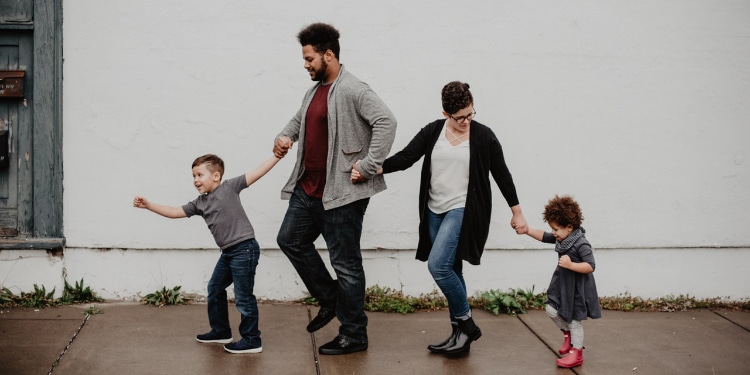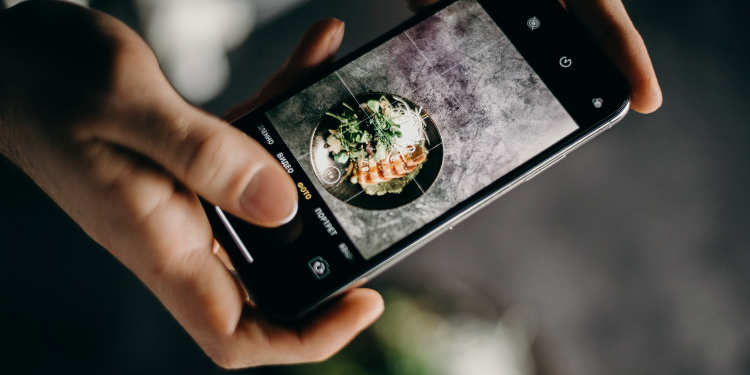











As the telehealth industry continues to grow, we are seeing the emergence of more and more mobile apps and online platforms that help users cope with mental health conditions such as depression, anxiety, eating disorders, and stress. Although researchers are still investigating the efficacy of mobile apps for eating disorders, the first results seem promising. Current evidence suggests that apps offer cost-effective and easily accessible intervention for those who cannot receive standard treatment.[1]

However, the mobile apps specifically designed for those dealing with eating disorders seem to offer much more than just an alternative to standard treatment; they provide support in other ways that can be used to complement the traditional approaches as well.
Today’s leading apps for those dealing with eating disorders can help with aspects of treatment that are typically more challenging in outpatient care. They include features that help guide the patient along their journey to recovery. Including:
As with any other mental or emotional disorder, psychoeducation is a vital part of the recovery process. Fortunately, most mobile apps for eating disorders provide helpful tips on how to manage your meals, overcome cravings, and gain a better understanding of your eating behaviors.
Dealing with an eating disorder can be pretty challenging, and since the recovery process can take months (even years), it’s relatively easy to slip back into old habits. That’s why it’s vital to implement a system that allows you to monitor your meals and track your progress. In fact, this feature makes these apps into reliable allies when it comes to adopting healthy eating habits.
Icons and badges are a fun way to celebrate your small victories and engage in some playful competition with other users. By incorporating game-like features, app developers can turn the often-complicated process of change and recovery into something exciting and enjoyable.
What better way to celebrate your progress than by sharing it with your friends and close ones? Apps allow you to share your badges, rewards, and achievements on social media, giving you the opportunity to gain some extra motivation from those who view and ‘Like’ your progress.
While studies on the efficacy of mental health apps has focused on depression, anxiety and substance abuse, the results seem to indicate that they can be very helpful.[2]
In addition, the relatively little research conducted on apps used in eating disorder recovery is favorable as well.[3] At this stage, it appears clear that eating disorder recovery apps represent a viable complementary approach to standard interventions.
If you’ve decided to try a recovery app for yourself or someone you care for, check out these 3 options:
Brighter Bite is a simple, user-friendly app that allows you to tackle different aspects related to eating disorders. From assessing your condition and gaining a better understanding of what you’re going through to beginning the recovery process and improving well-being, Brighter Bite covers every vital part of the healing process.
With the clear mission of making eating disorder recovery accessible, trackable, and properly guided, this app incorporates features like food and mood diary, assessment test, in-app chat, and lots of valuable information about bulimia, anorexia, binge eating, and other related disorders.
The best part is that all these wonderful features are completely free. All you have to do is sign up with your e-mail account and begin your journey towards recovery.
Brighter Bite is available on both iOS and Android.
Created by Recovery Warriors, a platform dedicated to helping people with depression, anxiety, and eating disorders boost their emotional resilience, Rise Up + Recover is the simplest eating disorder app I’ve come across.
In essence, this app has two main features:
The first one is a meal log where you can add various details about every meal of the day, plus your snacks. You can also export your records via e-mail, allowing you to keep track of your progress and observe changes in your eating behaviors.
The second feature is called Coping Skills, a collection of strategies (mindfulness, journal activities) that you can use to overcome cravings, adjust your body image, educate yourself about eating disorders.
The app is free and does not require login details, however you can add a security PIN to keep your information safe.
Rise Up + Recover is available on both iOS and Android.
RR: Eating Disorder Management was designed and built by a team of entrepreneurs, engineers, and psychologists from Palo Alto who set out on a quest to create the world’s best digital tool for eating disorder recovery.
With RR (Recovery Record), you can quickly check-in thoughts, feelings, behaviors, and triggers. You can also set goals, practice meditation & relaxation exercises, and create a personalized collection of affirmations to keep you motivated and inspired.
Unlike the other aforementioned apps, this one also lets you take photos of your meals and add a detailed description (item, quantity, etc.) of everything you ate.
But what really sets RR apart from other similar tools is that you can use the app to get in touch with a clinician. This allows you to address specific problems that you’re dealing with and receive personalized help.
RR is available on both iOS and Android.
While working with medical and mental health professionals should be the first course of action in treating eating disorders, incorporating the use of mental health apps such as those listed above can be valuable in assisting with recovery as well.
References